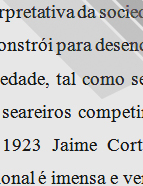

................................
It was António Sérgio’s goal to attack irrationalism and patriotic sentimentalism, under the pretext of Carlos Malheiro Dias's Exortação à Mocidade [Exhortation to Youth] in 1924. The attack and controversy culminated in the masterful Tréplica [Rejoinder] (Sérgio, O Desejado; Dias, Exortação; Sérgio, Camões; Idem, Tréplica; Castro, À margem). Like many other of Seara Nova's positions, the controversy was intended to provide a “gradual work of collective education.” Reflection, along with rational disciplines, 'the effort upon oneself, the sense of measure, clear vision, modesty, and critical sense'" stood in opposition to romantic rapture (Reis, Raul, p. 17). For Vitorino Nemésio, still a student in Coimbra, it was a confrontation between “a good servant of reason” and a “fanciful paladin,” “with clear signs of heroic intoxication.” Mário de Castro preferred “a conflict between two types of mentality, in which the ghost of King Sebastian appears as a mere precipitating reagent.” (Castro, À margem, pp. 5 and 9).
This would be a notable clash, not over the historical King Sebastian but over the inconsequential sentimentalism that was settling into society, largely generated by anti-rationalist philosophies and also by political saudosismos imported from abroad, especially from the integralists. The controversy thus ended, with Sérgio not responding further to the attacks that the integralists and others continued to launch against him. Manuel Múrias even referred to him as an “illustrious bungler.” Of the small book on Camões and King Sebastian, he wrote that it was nothing more than “jumbled nonsense, with refined bad faith stitched together from texts not always faithfully translated.” In addition to “absurd statements,” one had to account for his “habitual ignorance” and “unbridled critical spirit.” (Múrias, Politics, pp. 63, 64, and 68). The integralists, supporters of a return to absolutism, would not forgive those who believed in moving toward s democracy. That was the issue, that was the great debate.
